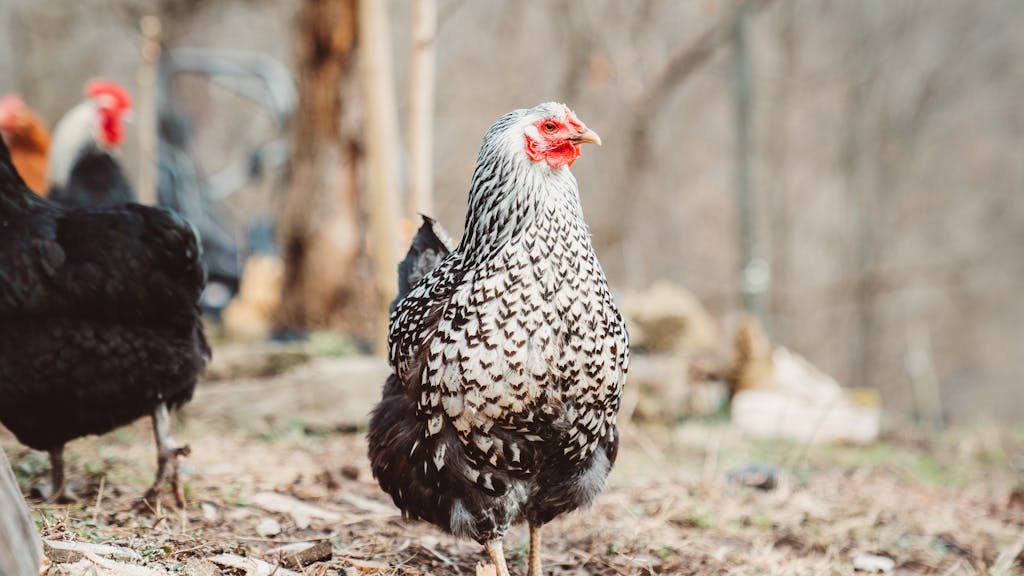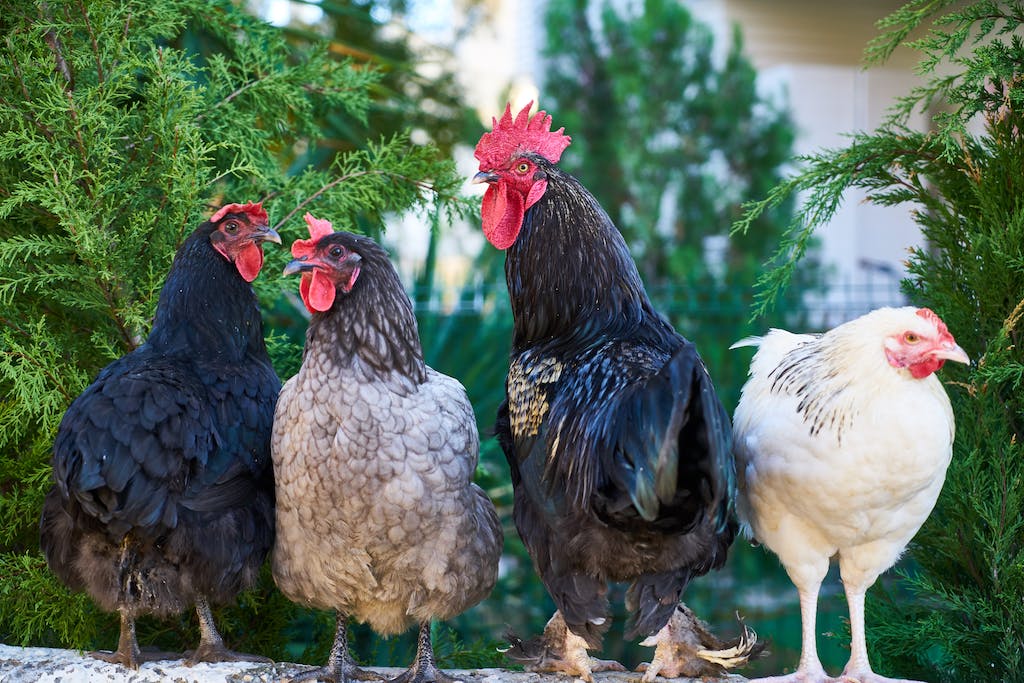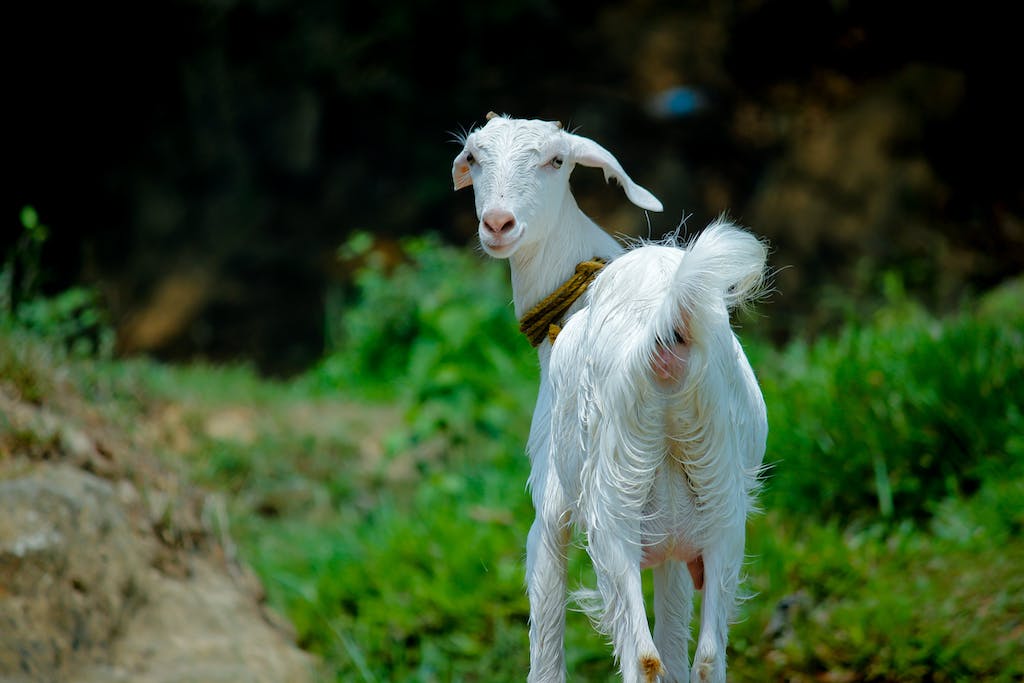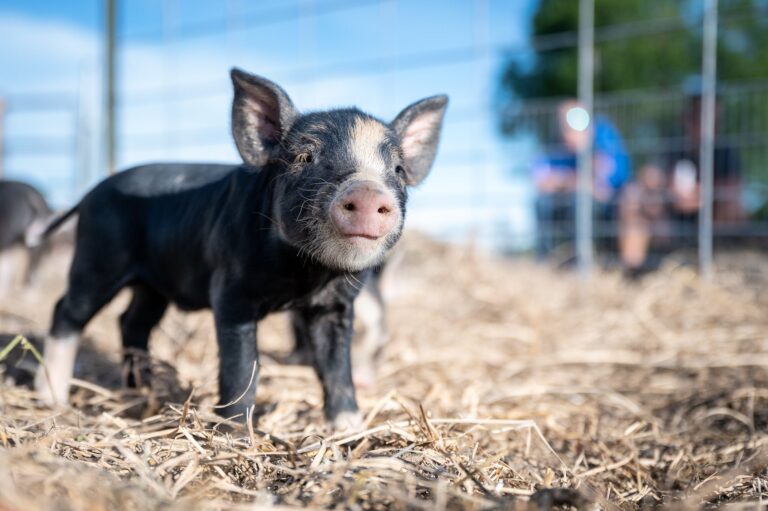Are Goats Hard to Take Care Of? A Comprehensive Guide to Goat Care
Taking care of goats can be a rewarding experience, but it’s important to know what you’re getting into before taking on the responsibility. Many people wonder, “Are goats hard to take care of?” The answer to that question depends on a number of factors.
First and foremost, it’s important to understand that goats are social animals and require companionship. If you’re only planning on having one goat, you’ll need to spend a lot of time with it or consider getting another goat as a companion. Goats require a lot of space to roam and graze, so you’ll need to have enough land to accommodate them.
When it comes to goat care, there are a few things to keep in mind. Goats need fresh water, hay, and a balanced diet that includes grains and minerals. They also require regular hoof trimming and vaccinations to stay healthy. While goats can be relatively low-maintenance compared to other livestock animals, they still require attention and care. Taking care of goats can be a good idea if you have the space, time, and resources to do so properly.
Understanding Goat Behavior
Goats are fascinating animals, but they can be challenging to take care of if you don’t understand their behavior. In this section, we will explore the social dynamics of herd animals and the curious and intelligent nature of goats.
Social Dynamics of Herd Animals
Goats are herd animals and thrive in groups. They have a social hierarchy within their herd, and each goat has a specific role. The dominant goat is the leader of the herd, and the other goats follow its lead. Goats use a variety of body language and vocalizations to communicate with each other, which helps maintain the social order within the herd.
As a goat owner, it’s essential to understand the social dynamics of your goats. You should provide enough space for each goat to have its own area and avoid overcrowding. Overcrowding can lead to stress and aggression, which can cause health problems and disrupt the social order of the herd.
Curious and Intelligent Nature
Goats are curious and intelligent animals. They are natural explorers and love to investigate their surroundings. They have a keen sense of smell and can detect even the slightest changes in their environment. They also have excellent memories and can remember places, people, and things for a long time.
As a goat owner, you should provide your goats with plenty of opportunities to explore and play. You can create an enriching environment by providing toys, climbing structures, and access to different areas. Goats also enjoy interacting with their owners and can be trained to perform simple tricks or tasks.
Understanding goat behavior is crucial for taking care of these animals. By understanding their social dynamics and curious nature, you can provide a healthy and enriching environment for your goats.
Choosing the Right Breed
When it comes to taking care of goats, choosing the right breed is essential. Different breeds have different temperaments, sizes, and care requirements. Here are some factors to consider when selecting a breed:
Differences Among Goat Breeds
There are many different breeds of goats, each with unique characteristics. For example, Pygmy goats are small and easy to handle, making them an excellent choice for beginners. Nigerian Dwarf goats are also small but have higher milk production. On the other hand, larger breeds such as Nubian goats are known for their high milk production but require more space and care.
Considerations for Urban Goat Keeping
If you live in an urban area, you may be limited in the types of goats you can keep. Some cities have restrictions on livestock, including goats. It’s important to research your city’s regulations before getting goats. Smaller breeds of goats, such as Pygmy and Nigerian Dwarf goats, are better suited for urban areas due to their size and lower care requirements.
When selecting a breed, consider your goals for keeping goats. Are you looking for milk production, meat production, or simply pets? Do you have the space and resources to care for a larger breed? By carefully considering these factors, you can choose the right breed of goat for your needs.
Basic Goat Care Essentials
Taking care of goats can be a rewarding experience, but it requires a certain level of commitment and attention to detail. Here are some basic goat care essentials to keep in mind:
Feeding Requirements
Goats are ruminants, which means they require a diet that is high in fiber. The majority of their diet should consist of hay or fresh grass. You can also supplement their diet with grains, but be careful not to overdo it as too much grain can cause digestive issues.
It’s important to provide your goats with fresh, clean water at all times. Make sure their water source is easily accessible and kept clean. Goats are known to be picky drinkers, so if they don’t seem to be drinking enough water, try changing their water source or adding some electrolytes to their water.
Shelter and Space Needs
Goats need a dry, draft-free shelter to protect them from extreme weather conditions. The shelter should be spacious enough to comfortably accommodate all of your goats and should be kept clean and well-ventilated. Wood shavings or straw can be used as bedding material.
Goats also require plenty of space to roam around and exercise. They are active animals and need room to run, jump, and play. A good rule of thumb is to provide at least 250 square feet of space per goat. They need a hay feeder that is kept clean and filled with fresh hay.
By following these basic goat care essentials, you can ensure that your goats stay healthy and happy. Remember to always monitor their behavior and health, and consult with a veterinarian if you have any concerns.
Health and Wellness
Preventing and Treating Common Ailments
Keeping your goats healthy is crucial to their overall well-being. There are several common ailments that goats can suffer from, but with proper care and attention, they can be prevented or treated. One of the most common health issues that goats face is external parasites, such as lice and mites. These parasites can cause itching, hair loss, and skin irritation. To prevent external parasites, make sure to keep your goats’ living area clean and dry. You can also use insecticides and other treatments to prevent infestations.
Another common health issue for goats is internal parasites, such as worms. These parasites can cause diarrhea, weight loss, and even death if left untreated. To prevent internal parasites, make sure to keep your goats’ living area clean and dry, and provide them with plenty of fresh water and high-quality feed. You can also use de-wormers to prevent infestations.
If your goats do become sick, seek veterinary care as soon as possible. Your veterinarian can diagnose and treat common ailments, such as respiratory infections, urinary tract infections, and digestive issues. They can also provide you with advice on how to prevent future health problems.
Importance of Regular Veterinary Checkups
Regular veterinary checkups are an important part of keeping your goats healthy. During a checkup, your veterinarian will examine your goats and check for any signs of illness or injury. They will also provide you with advice on how to keep your goats healthy, such as proper nutrition, exercise, and preventative care.
Your veterinarian can also provide you with vaccinations and other preventative treatments to help keep your goats healthy. For example, they may recommend vaccinating your goats against common diseases, such as tetanus and pneumonia. They may also recommend preventative treatments for internal and external parasites, such as de-wormers and insecticides.
Taking care of goats requires attention to their health and wellness. By preventing common ailments and seeking veterinary care when needed, you can help ensure that your goats stay healthy and happy.
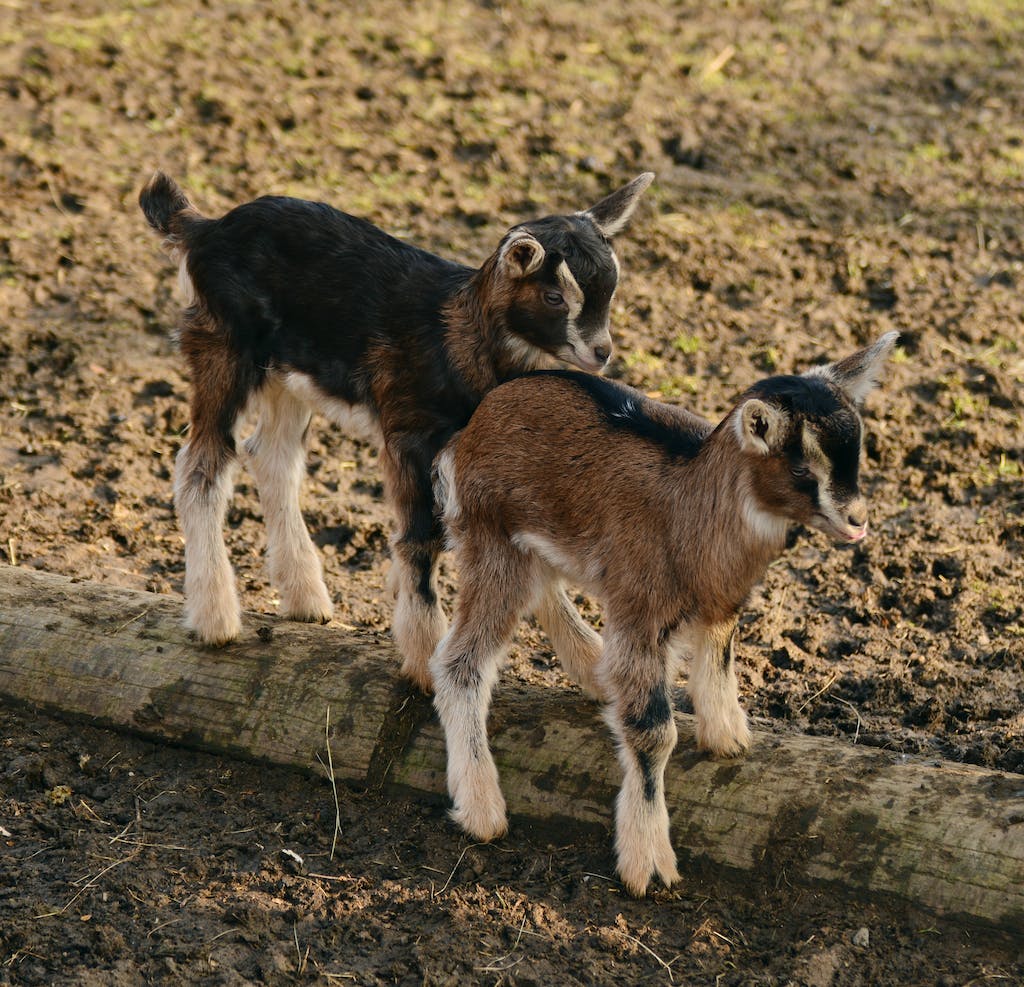
Reproduction and Breeding
Breeding goats can be an enjoyable and rewarding experience, but it requires proper management to ensure a healthy herd. Here are some considerations for managing breeding and kid rearing.
Managing Breeding and Kid Rearing
Female goats, also known as does, can become pregnant as early as six months of age and can have up to three kids per year. To ensure successful breeding, maintain a healthy and well-nourished herd. This includes providing adequate nutrition, clean water, and proper shelter.
When breeding goats, keep track of breeding dates and monitor the does for signs of pregnancy. Pregnancy can be confirmed through various methods such as ultrasound or blood tests. Once the doe gives birth, provide proper care for the newborn kids, including adequate nutrition and shelter.
Milk Production Considerations
Goat milk is a popular dairy product and can be used to make various dairy products such as cheese and yogurt. Female goats can produce milk for up to 10 months per year, with peak production occurring in the first few months after giving birth.
To maximize milk production, maintain a healthy and well-fed herd. Providing proper nutrition, clean water, and regular milking sessions can help ensure high milk production. It is also important to properly store and handle the milk to prevent spoilage and contamination.
Managing breeding and milk production in goats requires proper care and management to ensure a healthy and productive herd. By providing proper nutrition, shelter, and care, you can enjoy the benefits of raising goats and producing high-quality dairy products.
The Commitment of Goat Ownership
Owning goats can be a rewarding experience, but it also requires a significant commitment. As a goat owner, you will be responsible for the long-term care of your adult goats. This section will cover some of the key responsibilities and costs associated with raising goats.
Long-Term Responsibilities
When you decide to raise goats, you are committing to a long-term responsibility. Goats can live up to 15 years or more, so you will need to be prepared to care for them for many years to come. This includes providing them with proper nutrition, shelter, and medical care.
One of the most important aspects of long-term goat ownership is ensuring that your goats have access to clean water and nutritious food. Goats are ruminants, which means they require a diet that is high in fiber. This can include hay, grass, and other forage. You will also need to provide them with a mineral supplement to ensure that they are getting all of the necessary nutrients.
In addition to providing food and water, you will also need to provide your goats with a safe and secure shelter. This can include a barn, shed, or other enclosed structure. You will need to ensure that the shelter is well-ventilated and free from drafts, and that it provides adequate protection from the elements.
Understanding the Costs
Raising goats can be expensive, and understand the costs associated with goat ownership before making a commitment. Some of the key costs include:
-
Feed and Water: Goats require a diet that is high in fiber, which can be expensive. You will also need to provide them with clean water on a daily basis.
-
Shelter: You will need to provide your goats with a safe and secure shelter, which can be costly to build or maintain.
-
Medical Care: Goats require regular medical care, including vaccinations and deworming. You may also need to hire a veterinarian if your goats become sick or injured.
-
Equipment: You will need to purchase equipment such as fencing, feeders, and water troughs to properly care for your goats.
Owning goats can be a rewarding experience, but it requires a significant commitment of time, money, and hard work. By understanding the long-term responsibilities and costs associated with goat ownership, you can make an informed decision about whether or not it is right for you.
Housing and Containment
Fencing and Security
When it comes to housing goats, fencing is a critical factor to consider. Goats are known for being escape artists, and they can easily slip through small openings or climb over low fences. Therefore, it is essential to have sturdy fencing that is at least 4-5 feet tall. The fencing should also be buried at least 6 inches below the ground to prevent goats from digging underneath it.
Electric fencing is another option to consider, especially if you have a smaller space or a small farm. It is relatively easy to install and maintain, and it can be an effective way to keep goats contained. However, it is essential to ensure that the electric fence is properly grounded and that the voltage is set correctly to prevent any harm to the goats.
In addition to fencing, it is also important to ensure that your goat’s housing area is secure. Make sure that all gates and doors are locked securely, and that there are no gaps or holes in the walls or roof that could allow predators to enter.
Protection from the Elements
Goats are hardy animals and can tolerate a wide range of temperatures. However, they still require protection from bad weather, especially during the winter months. A well-insulated and ventilated shelter is essential to keep your goats warm and dry during cold and wet weather.
The shelter should be large enough to accommodate all your goats comfortably, with enough space for them to move around freely. It should also be well-ventilated to ensure good air circulation and prevent the buildup of moisture, which can lead to respiratory problems.
In addition to shelter, it is also important to provide your goats with man-made coats during the winter months. These coats can help keep them warm and dry, especially if they are outside for extended periods. Ensure that the coats are properly fitted and that they do not restrict the goat’s movement or cause any discomfort.
Providing adequate housing and containment for your goats is essential to their health and well-being. With proper fencing, security, and protection from the elements, you can ensure that your goats are safe, healthy, and happy.
Nutrition and Diet
Goats are ruminants and require a varied and balanced diet to maintain good health. Providing a diet that meets their nutritional needs is essential for their growth and productivity.
Providing a Varied and Balanced Diet
A varied diet is important to ensure that goats receive all the necessary nutrients. High-quality forages such as alfalfa and clover, along with good quality hay, should make up the majority of their diet. Avoid feeding goats toxic plants such as azaleas, rhododendrons, and oleander, as well as wilted or moldy hay.
In addition to forages and hay, goats may benefit from supplements such as baking soda to help regulate their rumen pH and prevent acidosis. It is also important to provide fresh, clean water at all times.
Supplements and Special Requirements
Goats have special dietary requirements that must be met in order to maintain good health. For example, they are prone to developing kidney stones and may require a diet that is low in calcium and high in phosphorus. Work with a veterinarian to develop a diet that meets the specific needs of your goats.
Providing a varied and balanced diet is essential for the health and well-being of your goats. By feeding them high-quality forages, good quality hay, and supplements as needed, you can help ensure that they receive all the necessary nutrients to thrive.
Socialization and Training
The Importance of Interaction
Goats are social animals and thrive on interaction with other goats as well as humans. Socialization is crucial for developing a good relationship with your goats. Spend time with your goats every day to build a bond and establish trust. This will make them more comfortable around you and easier to handle.
If you have goat kids or young goats, it is especially important to interact with them regularly. They are more impressionable and will benefit greatly from positive interactions with humans. This will help them become more friendly and easier to handle as they grow older.
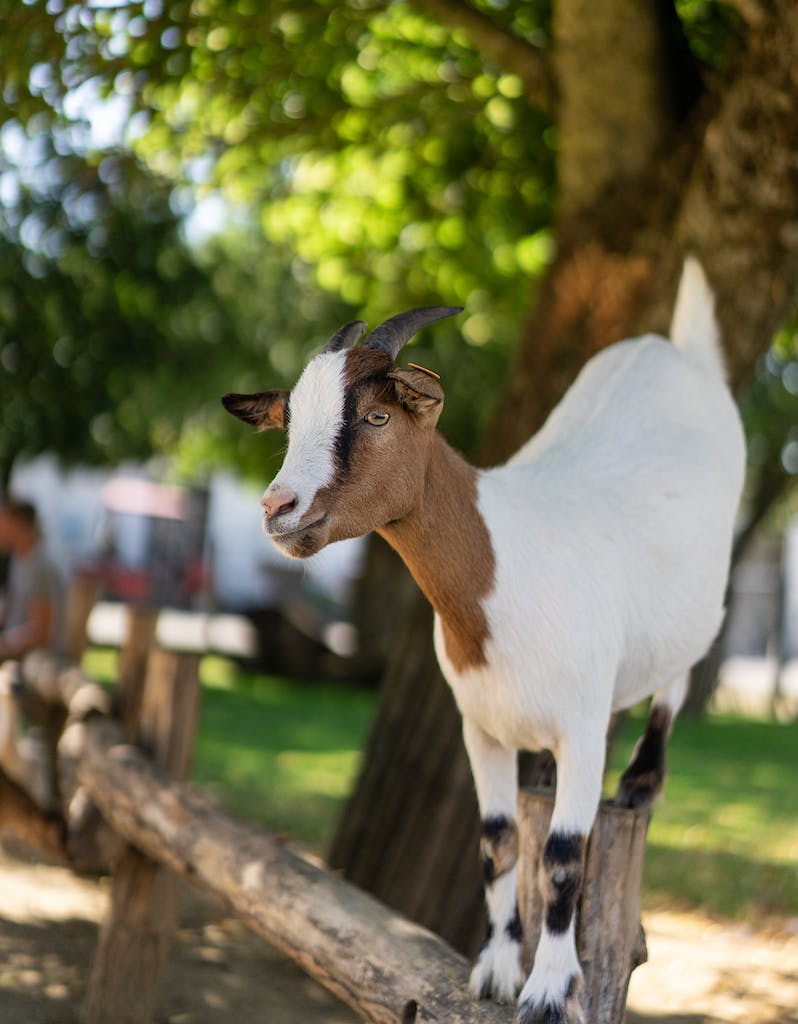
Training Your Goats
Training your goats is an important part of their care. Train them to follow basic commands and to be comfortable with being handled. This will make it easier to perform routine tasks such as hoof trimming, milking, and administering medication.
When training your goats, use positive reinforcement. This means rewarding good behavior with treats or praise. This will encourage your goats to repeat the behavior in the future. It is also important to be patient and consistent with your training. Goats are intelligent animals and can learn quickly, but they also have their own personalities and may require different approaches.
Socialization and training are important aspects of taking care of goats. Spending time with your goats every day and training them to follow basic commands will help build a good relationship and make them easier to handle. Remember to use positive reinforcement and be patient and consistent with your training.
Legal and Community Considerations
Navigating Local Regulations
Before considering raising goats, research and understand your town’s regulations and local laws regarding backyard goats. Some towns may have strict regulations regarding the number of goats allowed per household, the size of the property, and the type of fencing required.
In addition, some towns may require a permit or license to keep goats. Obtain all necessary permits and licenses before bringing goats onto your property to avoid any legal issues.
Being a Good Neighbor
Raising goats in a residential area can sometimes be a sensitive issue for neighbors. Be a good neighbor and take steps to minimize any potential issues.
One way to do this is to ensure that your goats are properly contained within your property and that their enclosure is kept clean and well-maintained. This can help to minimize any odors or noise that may bother your neighbors.
Be respectful of your neighbors’ property and privacy. Avoid allowing your goats to wander onto neighboring properties and be mindful of any noise or disturbances that may be caused by your goats.
By being a responsible goat owner and taking steps to be a good neighbor, you can help to ensure that your goat-raising experience is a positive one for both you and your community.
Resources and Support
Taking care of goats can be a rewarding experience, but it can also be challenging. Fortunately, there are resources and support available to help you along the way. Here are some options to consider:
Finding a Goat Community
Connecting with other goat owners can be a valuable source of information and support. Consider joining a local goat club or association. You can also find online communities and forums where you can ask questions and share advice with other goat owners.
If you’re new to goat ownership, it’s especially important to connect with experienced goat owners who can offer guidance and support. Look for mentors who can show you the ropes and help you troubleshoot any issues that arise.
Learning from Experts
There are many experts in the field of goat care who can offer valuable insights and advice. Consider attending workshops or seminars led by goat farmers or experts in the field. You can also find online resources such as blogs, podcasts, and webinars that cover a wide range of topics related to goat care.
Another option is to visit your local feed store. Many feed stores employ knowledgeable staff who can offer advice and answer your questions about goat care. They can also help you select the right feed and supplies for your goats.
Remember, taking care of goats is a learning process. Don’t be afraid to ask for help or seek out resources when you need them. With the right support, you can provide a happy and healthy home for your goats.



